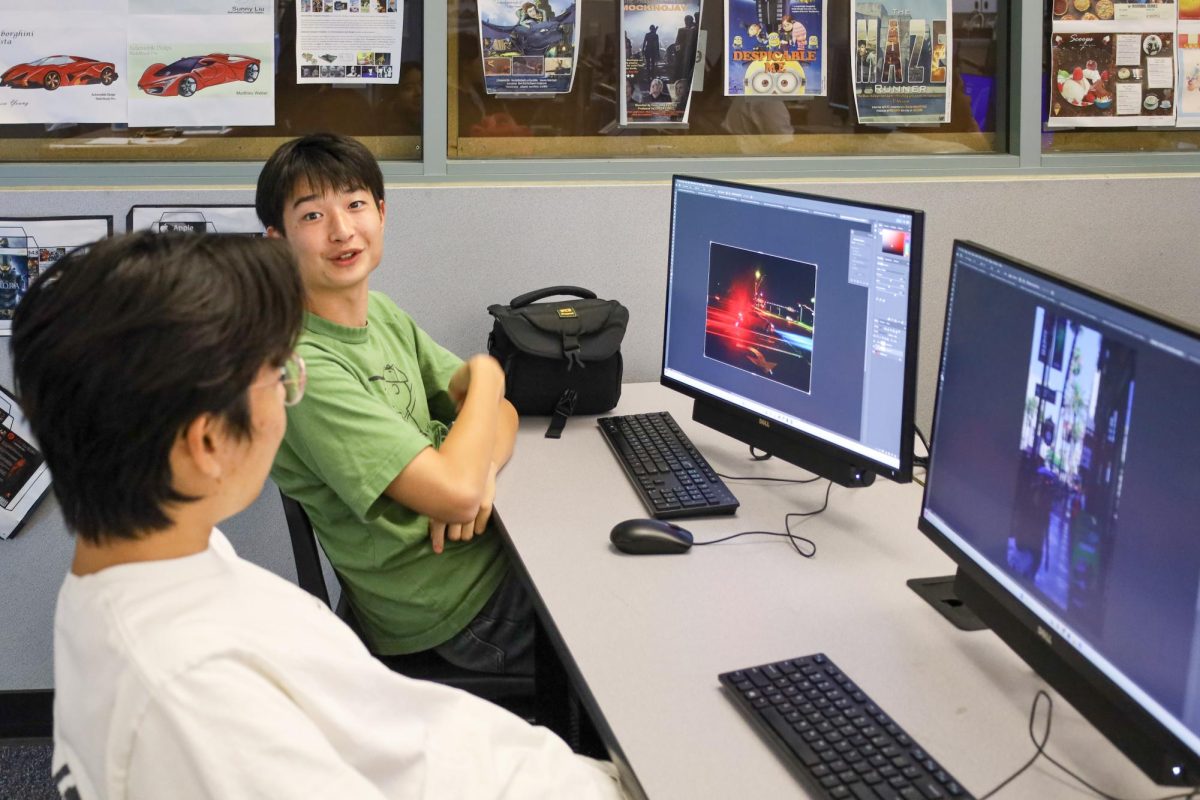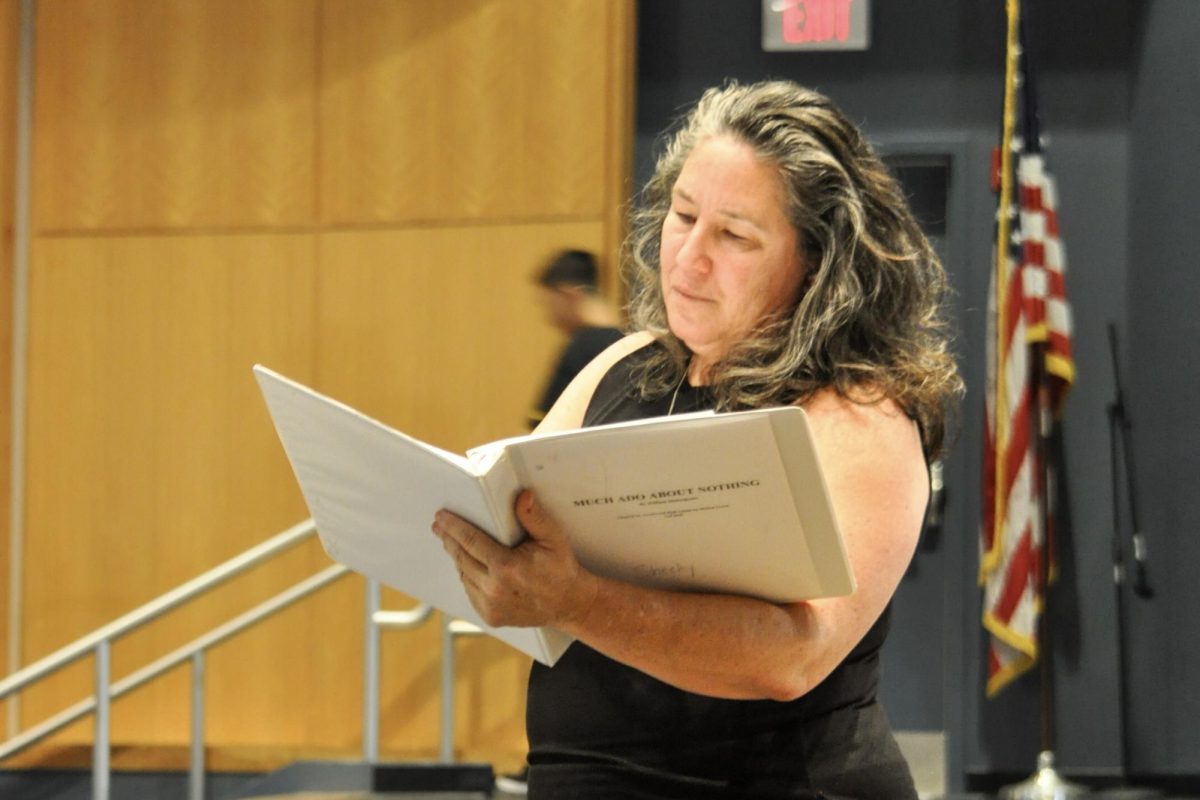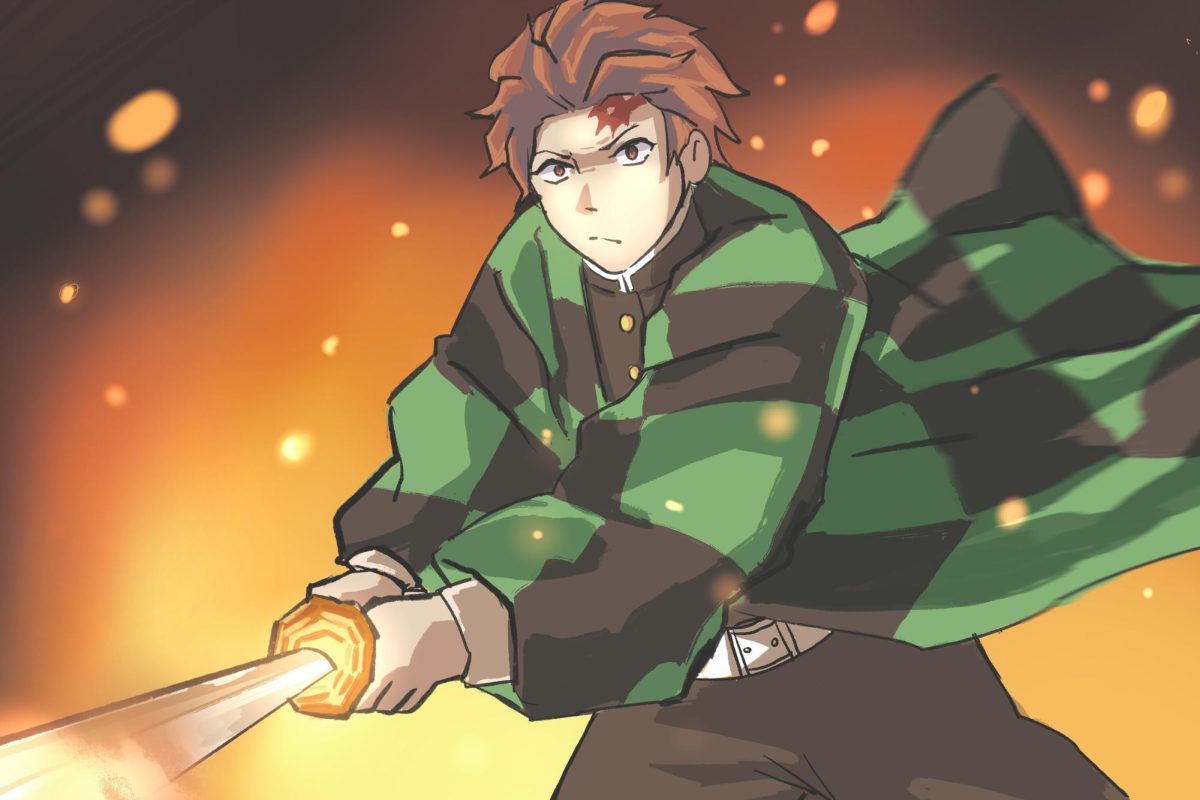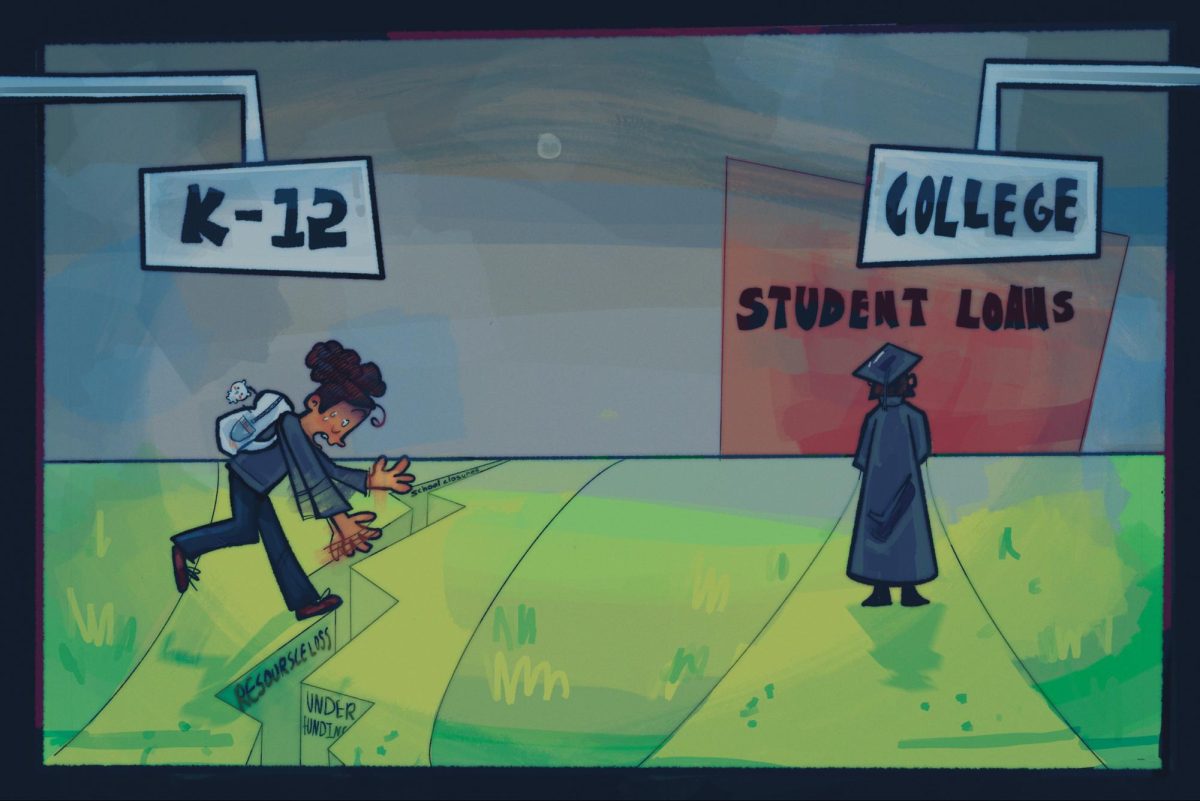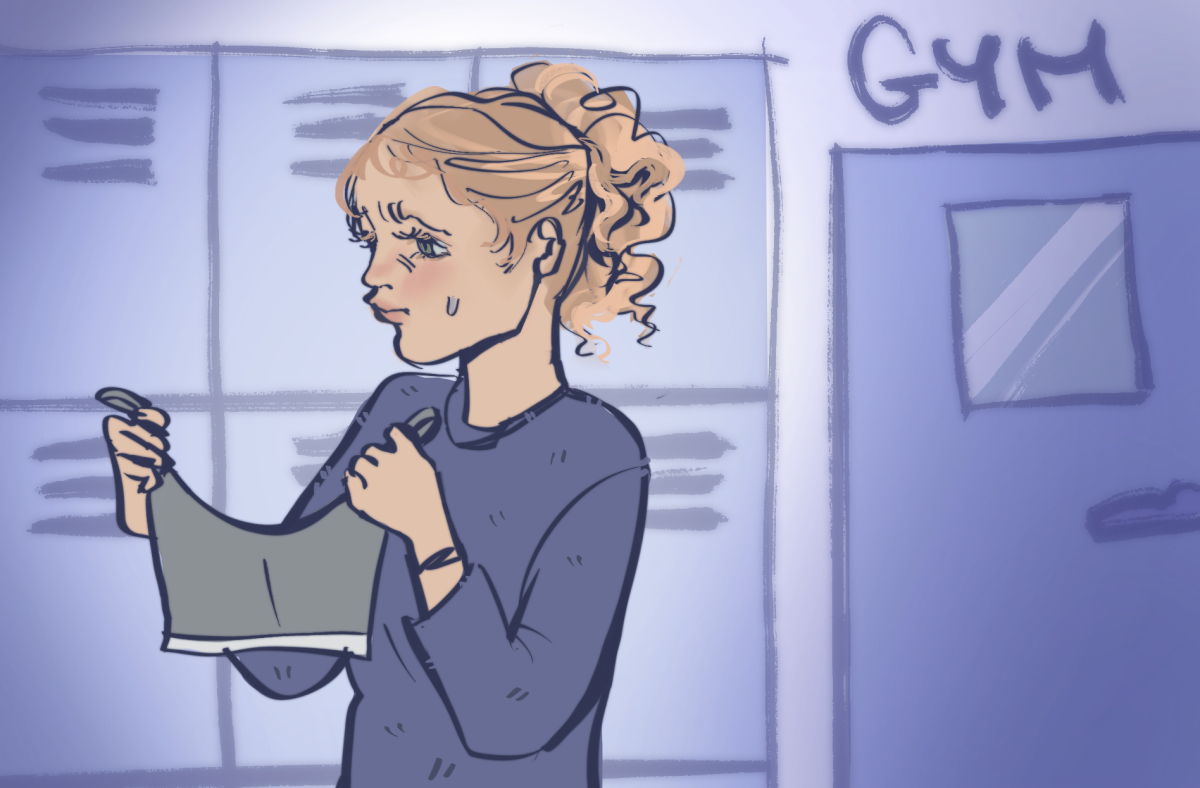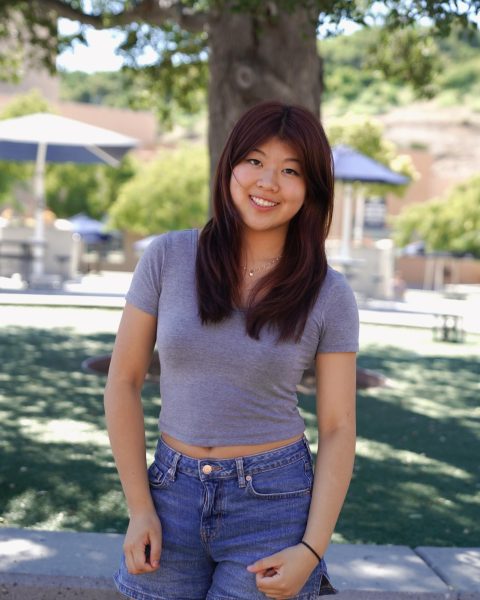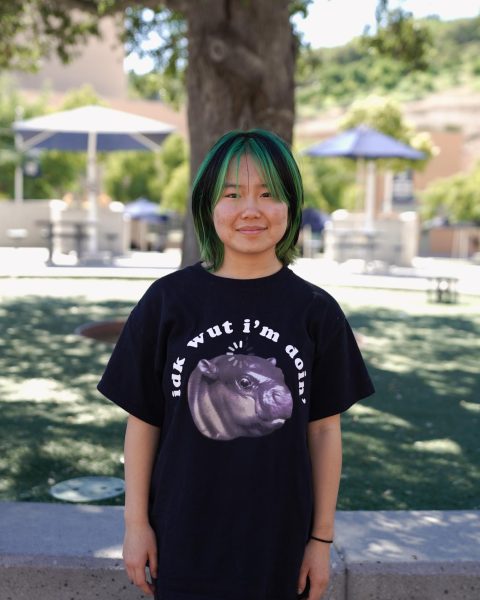With over 314 million views, 58 million monthly Spotify listeners and four simultaneous Billboard Hot 100 top 10s, you would expect a major pop star’s new album or a long-awaited release from a renowned director. Instead, the record-breaking, chart-topping and trend-setting film is a children’s movie that had hardly any marketing and zero expectations. “KPop Demon Hunters” has become a viral pop culture sensation, smashing records for both movie production and its iconic soundtrack, and continuing to dominate the top of Billboard charts nearly four months after its release.
The animated film centers around fictional K-pop idols Rumi (Arden Cho), Mira (May Hong) and Zoe (Ji-young Yoo), who are members of world-famous girl group “HUNTR/X.” Their secret? They are actually undercover demon hunters who must sing to seal the Honmoon, a protective barrier strengthened by perfect harmonies that keeps demons locked in the underworld to prevent them from eating humans’ souls. In an attempt to feed on more souls, the demon king Gwi-Ma (Lee Byung-hun) sends a K-pop group of his own, the Saja Boys, to wrestle fame from HUNTR/X and break open rifts in the Honmoon.
On the surface, “KPop Demon Hunters” seems like a frivolous movie intended for kids. However, it explores much deeper topics such as generational trauma, impostor syndrome and the K-pop industry’s toxic parasocial relationships, diving into themes like guilt, the infantilization of idols and insecurity about one’s identity. The characters are relatable and realistic, and the struggles that each member faces are universally applicable. Rumi’s insecurities about being both a demon and a hunter can be tied to the internal cultural conflict common among biracial and multi-ethnic individuals. Zoe battles people-pleasing tendencies that often put others’ needs above her own, and Mira grapples with an intense fear of rejection, since she is constantly criticized for her attitude. Even the Saja Boys portray real-life issues within the industry. Jinu (Ahn Hyo-seop), the male lead, skillfully portrays guilt in an incredibly raw way, appealing to viewers with his impactful lines and moral ambiguity. Each of the other boys, Romance (Joel Kim Booster), Mystery (Alan Lee) and Baby Saja (Danny Chung), is a caricatured representation of different issues that plague the K-pop industry.
So how does “KPop Demon Hunters” manage to deliver these powerful, heavy themes while still maintaining a positive, entertaining mood? The answer lies in its flawless soundtrack, perfectly encapsulating each element of the movie while maintaining the quality of a real, studio-produced album. Each song’s lyrics are intentional, enhancing the movie’s plot development.
“Golden”
The quality of the lead single of the film’s soundtrack, “Golden,” is exactly as the name suggests. With catchy and impactful lyrics, the song delves into each of the three lead characters’ struggles, with relatable lines such as “I lived two lives, tried to play both sides but I couldn’t find my own place” and the iconic bridge to chorus, “I’m done hidin’ now I’m shinin’ like I’m born to be,” followed by “We’re goin’ up, up, up, it’s our moment you know we’re gonna be glowin,’ gonna be gonna be golden.” Paired with EJAE’s incredible vocal range, it’s easy to see why Netflix submitted this song for an Oscar nomination, how it topped the charts at No. 1 on the Billboard Hot 100 and, of course, how it sealed the Honmoon.
“Your Idol”
This piece is the perfect example of how a villain song should be done. In the midst of a dramatic takeover scene, Jinu and the Saja Boys perform “Your Idol” in front of a massive crowd of crazed, hypnotized fans as their final step for gaining total control of the audience’s souls (a nod to the unhealthy obsession of real fandoms). The play on words with “idol” and the song’s lyrics satirize the parasocial relationships between fans and their “idols.” The demons physically and metaphorically feed on the fans’ energy and attention: “Keeping you in check, keeping you obsessed, play me on repeat in your head, [and] anytime it hurts, play another verse, I can be your sanctuary.”
“KPop Demon Hunters” defies all expectations. From the meaningful messaging to its expertly produced soundtrack resembling real K-pop songs, the small but powerful details distinguish this movie. The quirky title and somewhat childish premise mask the film’s true prowess, and it is definitely worth a watch, regardless of your opinions on K-pop, demons or hunters.


